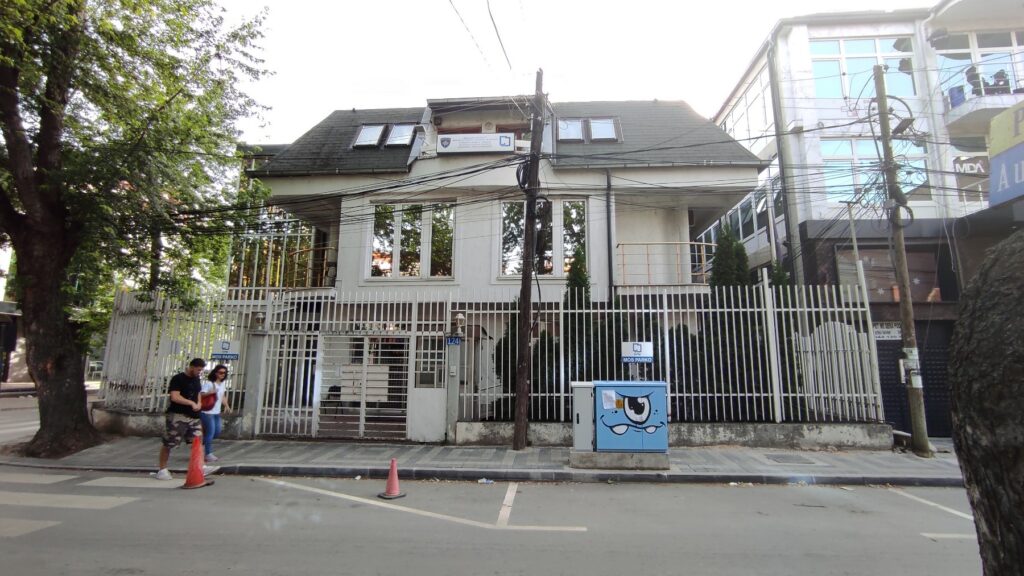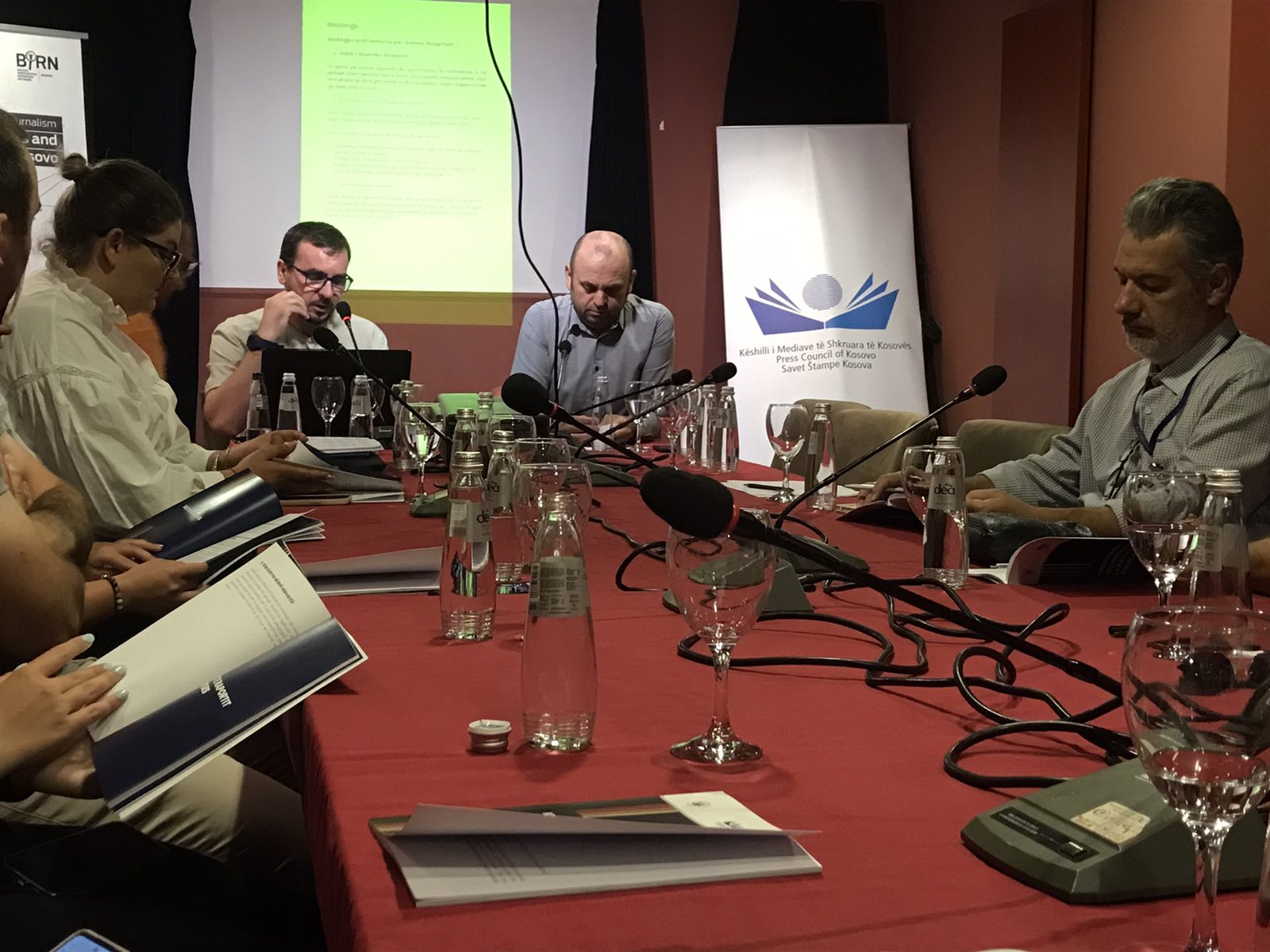Kosovo’s Independent Media Commission, IMC, on Tuesday urged a halt to broadcasts of Serbian sport TV channels, days after they carried messages supporting the armed Serbs killed during in shootout with Kosovo Police in Serb-majority northern Kosovo on September 24.
“We urge distribution operators to stop broadcasting Arena [Sport] channels,” the head of the IMC Board, Jeton Mehmeti, said in a meeting in which five members of the board supported the ban.
“We now have evidence that Arena Sport channels … broadcasted video messages which come from Serbia and contained glorifications of the terrorist attack in the north, and represent threatening messages to Kosovo citizens,” Mehmeti said.
The decision affects ten Arena Sport channels which are carried on Kosovo’s main cable TV platforms.
Art Motion, one of the Kosovo cable TV networks which carries Arena Sport channels, did not respond to BIRN’s request for comment on Wednesday over the IMC decision. Arena Sport is owned by Telekom Srbija company.
Another cable provider, IPKO, told BIRN on Friday that it will respect the decision “until the provider of these channels fixes this matter definitively with the IMC”.
The IMC is an independent institution responsible for the regulation, management and oversight of the broadcasting frequency spectrum in Kosovo.
Two days before the decision, Mehmeti said the IMC received complaints from viewers that, during the half-time break and after football matches, Arena Sport channels broadcasted messages in support of the armed gunmen who attacked Kosovo Police on September 24 in the village of Banjska in the northern municipality of Zubin Potok. A Kosovo Police officer and three of the gunmen were killed in the shootout.
The other attackers managed to escape through mountainous terrain.
Graphics shown on the TV screen bore the messages: “We will remember” and “Glory to heroes” with a photo of Banjska Monastery, Serbia’s coat of arms and the date “24.09.2023” together with the inscription “Manastir Banjska” at the bottom left of the screen.
The aftermath of the attack has caused controversies inside Kosovo’s public broadcaster, Radio Television of Kosovo, RTK. On September 30, its board suspended Zeljko Tvrdisic, the director of RTK 2, the channel broadcasting in the Serbian language. According to the announcement, the suspension is valid for 30 days.
“After a detailed discussion … regarding the chronicle broadcast on the news of RTK2 dated September 28, 2023, following the proposal of the general director, the Board of RTK has unanimously decided to suspend from office for a period of 30 days the director of RTK 2, Zeljko Tvrdisic,” media cited the RTK Board as saying.
According to the media, RTK 2 news had described the three Serbian gunmen killed in the police action in Banjska as “victims”.
The management of RTK has said it will conduct a detailed analysis of the situation to identify violations of professional standards. RTK has warned of other disciplinary measures.
But the original RTK2 news article that BIRN has seen in fact used the word “stradali” for the killed Serbs, which in Serbian means “died”, “killed”, or “perished”, not “victims”, which is “zrtve” in Serbian.
Tvrdisic told BIRN that he is waiting for the internal commission of the public broadcaster, formed on October 3, to finish its evaluation and inform him about the decision.
He said that it was “scandalous” that he was informed about his suspension by the media on September 30 and only received the official note from RTK on Monday, October 2.
“I am confident that I have acted in accordance with professional standards, the ethics code and the law. The problem is we reported on an event in [the town of] Gracanica, where the lighting of candles for the murdered was organised. It was also stated as a problem that, in a statement, we had the President of the Serbian Journalists Association, who used the word ‘Metohija’,” Tvrdisic told BIRN.
Serbia officially uses the expression “Kosovo and Metohija” for Kosovo – a term which many Kosovars see as implying a Serbian character to Kosovo.









